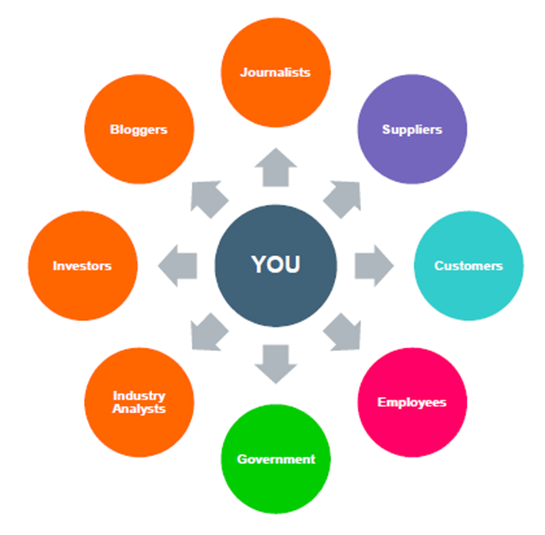How can effective communication help define and drive your business?
Guest post by Elodie Castagna & Shane Murphy, FTI Consulting
What is communication? It seems fairly easy and uncomplicated to know how to communicate as we all do it in our day to day life but actually it’s quite hard to be a good and engaging communicator. A message is only successful when both the sender and the receiver perceive it in the same way.
When starting a business, the first question you get asked is ‘what does your business do?’ This may be an easy question for you to answer but when telling your story can you communicate effectively and concisely?
For someone who is not tech savvy or within the sector, the key is to communicate with simplicity. What is crucial is to step aside from your understanding of your company and put yourself in your audiences’ shoes. Think about who is in front of you, the industry they operate in and what is in it for them.
Your Audience
Even as an early stage start-up you will have a key audience to reach to and who you would want as backing your business from an early stage.
You might not already be involved with each stakeholder below, but the way you will engage with each and every single one of them will be different depending on what you are trying to convey and on what they will want to know. Therefore the emphasis and means of engagement are different.
For example when speaking to a journalist it’s important to bridge the gap between what YOU want to say and what readers want to hear about ‘Why is this an interesting story? What’s the benefit for me as a reader?’

Where you can you make a difference is in making the first right impression.
Don’t use jargon and complicated words but think about the main 3 key takeaways you want to convey.
For example, when speaking to potential and existing investors, put yourself in their shoes and try to answer the question ‘How will this make a return?’ This is what investors will want to know to fully understand the value of your investment proposition. Is it the proven business model, the strong management team, the strong growth path or all of the above and more?
Am I ready for PR?
The first question to ask yourself is am I ready to communicate my story to the wider public?
The media is an important conduit to reach all your stakeholders. The Internet and hardcopy sources are the first mediums people look at when willing to know more and to seek credibility and reassurance on your company. Your key stakeholders, from suppliers to future employees and investors, will look at what has been written about your company and this will shape their assessment of what they think of you and your business.
To the media you are just one in thousands of tech companies and top journalists receive 100s of press releases a day, so the key is to pick the right moment and when the moment comes, get it right. Good PR will help you break through the noise and build awareness on your company.
If you are able to answer the questions below, you are one step closer in getting a journalist’s attention:
- How is my business different to what already exists?
- What problem do I solve?
- How does it fit within the industry and world events?
- Do I as a reader get it and will the editor get it too?
Remember simplicity is key when conveying your messages. A mistake which often occurs is that as an early stage entrepreneur you are immersed in your business but what journalists and readers are interested in are trends in the space. Do your research and be prepared to talk more widely about the events that affect the industry you are part of.
Also don’t be too aggressive in what you communicate as that may upset a customer or important partner.
Remember that PR is not a guarantee that a certain story will be written and that a negative story will not be published. Therefore content and timing are key.
Outcome of a good article
- People look to the media to inform – being in the right media can build not just awareness but credibility
- Coverage in specialist publications can open up your business to new audiences
- With planning, that article can be a good reference point for potential customers, suppliers, employees and investors
- And in the digital and social world, it’s very easy for you to share coverage with the right people. Social media allows you to talk directly to all your stakeholders
Simple Tips to effectively communicate:
- Convey key messages in all corporate collateral – ensuring consistency throughout
- Create a factsheet for the media – make your offer simple, clear and attractive
- Website – make it easy for users to get in contact and find out more / and make sure the website can cope with a deluge of hits
- Be helpful and open - but you don’t have to say yes to everything
- Enjoy it – enthusiasm is catchy
The ultimate goal is for people to know, trust and use your brand!
FTI Consulting: As part of FTI Consulting’s Strategic Communications Practice, Elodie and Shane have more than 10+ years providing Financial Communication advice to Technology, Media and Telecoms companies building company awareness and support within the media and capital markets. In addition to advising companies on their corporate and financial public reputation, IPOs, M&As, and restructurings. https://www.fticonsulting.com/services/strategic-communications/index.aspx
Elodie and Shane will be hosting a seminar session on How to Effectively Communicate with Media & Investors in Perth (April) and Sydney (May) . If you are interested to know more or just willing to get in touch, do email us on Elodie.castagna@fticonsulting.com / shane.murphy@fticonsulting.com